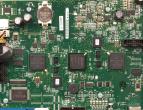KBR in cooperation with UGent, ULB, VUB and UCL invites you to attend a scholarly series on digital cultural heritage: the KBR Digital Heritage Seminar.
In this series from February to June 2022 we will virtually host three academic scholars in presenting their work on cultural heritage and specifically on image processing. “The devil is in the details!” When it comes to digital cultural heritage, this is as true as “The devil is in the images!” Great efforts have been devoted to the digitization of original collections in the cultural heritage. On the one hand, this helps greatly in promoting the collections and in allowing the general public to have much easier access to the collections (e.g. by publishing the images on websites like our digital library Belgica). On the other hand, technologies still need to be advanced in order to fully exploit the information (e.g. texts) that are still locked behind the digitized images. In this series, we are very honored to have three researchers who have rich experiences in image analysis and especially for extracting information from digitized collections.
Programme
Apostolos Antonacopoulos, University of Salford, Manchester, UK will present on “Understanding information-rich documents: experiences with historical England & Wales censuses” on 15 March 2022 from 14:00 - 15:30 CEST.
In the Pattern Recognition and Image Analysis (PRImA) research Lab, from the University of Salford, great efforts have been devoted to the investigation and analysis of cultural heritage materials especially using image processing and pattern recognition techniques. In the last a few years, a series of large-scale projects, including IMPACT – Improving Access to Text, Europeana Newspapers, Succeed – Support Action Centre of Competence in Digitisation, EMPO – Early Modern OCR project and Census 1961 were being hosted by PRImA.
In this talk, Prof. Antonacopoulos, the founder and leading professor of PRImA, will give his insights on the processing and exploitation of cultural heritage materials. A special focus will be given to the ongoing project of Census-1961, where the main objective is to extract and model historical population census information using computer vision techniques.
About the speaker
Professor Apostolos Antonacopoulos currently leads the Pattern Recognition and Image Analysis (PRImA) research Lab at the University of Salford, UK. He is also a member of the executive committee of the International Association for Pattern Recognition (IAPR) which is one of the largest international association of non-profit, scientific organizations which are concerned with pattern recognition, computer vision, and image processing in a broad sense.
Practical information
Registration is free but mandatory. The morning of the event you will be sent the link to the webinar. Should you have any further questions please email tan.lu@kbr.be.
